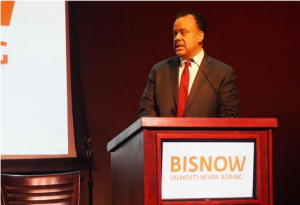 REGIONAL POLICY ACTIVATION
REGIONAL POLICY ACTIVATION
In early 2019, the HAND Board and staff completed a Strategic Alignment process to determine how to leverage the power of its membership to make meaningful progress on the housing affordability crisis. After interviewing and surveying hundreds of members, one of the clearest messages that emerged was that HAND must use its unique platform to influence affordable housing programs and policy in our region.
HAND has accepted this challenge and is committed to taking bold steps to build public and private will, and to catalyze action that addresses the crisis in a substantial manner. Below are more details on how HAND has played a role in advocacy and policy to date.
BOLSTERING HAND MEMBER CAMPAIGNS
HAND has traditionally signed letters of support for broad-based initiatives (i.e. Low Income Housing Tax Credit and New Markets Tax Credit campaigns, among other items.). The organization has also extended its communications platforms to members looking to leverage their activities on the HAND website, News & Notes distribution list (7,500+ inboxes), blog and social media. The following are letters of support and comments drafted and signed by HAND:
2021- Supportive Services Transformation Fund Letter (May 2021)
- Build More Housing Near Transit Act Letter (April 2021)
- Fairfax County FY2022 Budget Advocacy Letter (March 2021)
- DC Building Energy Performance Standards (BEPS) (March 2021)
- Preservation of Section 4 Funding (February 2021)
- DC Comprehensive Plan (February 2021)
- DC Comprehensive Plan (September 2020)
- Virginia Emergency Housing Protections & Relief (July 2020)
- Support for Expanded Inclusionary Zoning in DC (July 2020)
- HOME COVID-19 Funding Request Letter (June 2020)
- DC Budget Recommendations (June 2020)
- National Residential Rent Relief Fund (April 2020)
- Fairfax County FY2021 Budget (April 2020)
- Coronavirus Aid, Relief, and Economic Security (CARES) Act (April 2020)
- Community Reinvestment Act (CRA) Reform (April 2020)
- DC Comprehensive Plan (January 2020)
- DC Comprehensive Plan (October 2019)
ADDITIONAL ADVOCACY & POLICY
2021Preservation of Section 4 Funding
The U.S. Housing and Urban Development (HUD) Section 4 Capacity Building program (Section 4) strengthens rural and urban communities across the nation by providing flexible support to local nonprofit organizations to develop affordable housing, finance small businesses, revitalize commercial corridors, and help address local healthcare, childcare, education, and safety needs. Through direct financial assistance, training, and guidance, Section 4 gives local organizations the staffing, program development, and financial resources needed to maximize the impact of the services they provide and ensure the long-term sustainability of their investments. In February 2021, HAND joined Enterprise Community Partners, Habitat for Humanity and LISC (and a bevy of other partners) in signing on to a letter requesting no less than $50 million for Section 4 in the FY 2022 Transportation-Housing and Urban Development bill. The letter also requested an additional $40 million in any future economic recovery legislation and further appropriations to the Self-Help Opportunities Homeownership Program (SHOP) account, which supports many critical HUD programs.
Supportive Services Transformation Fund
In May 2021, HAND joined CSH and other partners in signing a letter of support for the Supportive Services Transformation Fund (SSTF). The SSTF will create a national infrastructure for services and supports to help people who have complex needs find stability in their lives. These can include support for people at risk of becoming homeless to help them stay in their homes, access to health care and counseling services, help for parents and children involved in the child welfare system, and assistance after leaving jail. The SSTF can shift us from overreliance on institutional and emergency systems to coordinated services that address housing instability and support people with complex care needs. Specifically the SSTF will: create a national infrastructure of support for people at risk of losing their homes through services available with the Medicaid Home and Community Based Services; cover critical support services not covered through Medicaid; improve the timeliness and coordination of services provided through public and private systems; and build capacity and accountability to address systemic racism.
CRA Reform
In early 2020, HAND submitted comments to both the Office of the Comptroller of the Currency (OCC) and the Federal Deposit Insurance Corporation (FDIC) on proposed changes to the Community Reinvestment Act (CRA). Originally enacted in 1977, the CRA was designed to strengthen existing laws that required banks to sufficiently address the banking needs of all members of the communities they served. Specifically, one of the goals of the CRA was to reverse the effects of redlining, a controversial practice in which banks restricted lending in certain neighborhoods that were deemed too risky (particularly communities of color). The CRA requires its regulators to assess how well each bank fulfills its obligations to these communities, and the score is used to evaluate applications for future approval of bank mergers, branch openings, and more. The incentives under CRA are also a major driver of investment in LIHTC, which impacts investment in affordable housing. HAND’s comments argued that the proposed changes were counter to the original intent of the law, and will make banks far less accountable to the communities they are responsible for serving.
CARES ACT
The Coronavirus Aid, Relief, and Economic Security (CARES) Act, signed into law on March 27, 2020, treated Washington, DC differently than virtually all other federal legislation by funding it comparably to U.S. territories rather than states—which meant it lost some $750 million in essential financial support (the District of Columbia was allocated about $500 million compared to $1.25 billion for states). In April 2020, HAND joined the Washington Regional Association of Grantmakers (WRAG) and nearly 30 other leaders representing philanthropic, business and nonprofit organizations in the Capital Region to call for funding at the state level for DC in future COVID-19 legislation.
Fairfax County Budget
In April 2020, HAND had the opportunity to provide comments on Fairfax County’s Revised FY2021 Budget. On top of the existing housing affordability crisis, Fairfax County and the surrounding region were also navigating the COVID-19 pandemic, which only served to magnify the harsh challenges within our most vulnerable communities. HAND’s letter urged the County to consider recommendations that prioritized support for: vulnerable populations, service providers and nonprofit property owners, housing affordability and racial equity. In March 2021, HAND joined a coalition of organizations who provided comments for the FY2022 Budget. Similar to the previous year, this letter’s recommendations focused on providing essential resources and assistance to the most vulnerable populations. Notably, it urged the County to adopt the housing goals specific to Fairfax County, referencing HAND’s Housing Indicator Tool (HIT), and to establish a local rental subsidy fund among other items. The FY2022 letter can be found here.
National Residential Rent Relief Fund
In April 2020, HAND joined the Virginia Poverty Law Center and other community organizations in calling for the Virginia Congressional delegation to support efforts to provide $100 billion in federal funding for a national residential rent relief fund. At the time, Virginia, like the rest of the country, was dealing with devastating impacts from COVID-19. The state faced nearly 500,000 unemployment claims by late April 2020 according to the Virginia Employment Commission. A substantial portion of these claims were filed by food preparation and service workers and administrative workers, who also tend to be renters. Further, the University of California at Berkley reported that nearly half of renter households in Virginia were rent-burdened, putting countless residents at risk for eviction – which not only impacts residents, but also housing providers who are expected to make mortgage payments. Importantly, the letter also requested that the program include prohibitions on: charging late fees, issuing pay or quit notices, and filing eviction cases in court.
DC Budget Recommendations
In June 2020, HAND submitted testimony to the DC Council’s Committee on Housing and Neighborhood Revitalization, detailing budget recommendations for several programs that support the production and preservation of affordable housing. Specifically, the comments called for appropriate funding to be applied to the Housing Production Trust Fund (HPTF), Affordable Housing Preservation Fund (AHPF) and Local Rent Supplement Program (LRSP). The testimony reiterated that the COVID-19 pandemic underscored the urgency of housing affordability, and that housing must be considered as we seek racially equitable solutions for our communities.
Build More Housing Near Transit Act
The undersupply of housing and the resulting affordability crisis are particularly acute in walkable, transit-served locations. Demand for these transit-oriented urban spaces has increased, but housing production has not followed. In June 2020, HAND joined over 30 state, local and national organizations in endorsing the Build More Housing Near Transit Act prior to its introduction in the Senate. If enacted, this legislation would provide several benefits including: improved quantitative analysis of the U.S. DOT Federal Transit Administration (FTA) projects, land use policies that allow an adequate supply of housing near transit-served areas and increased environmental benefits, among other items. In April 2021, Congressman Scott Peters (D-CA), Congresswoman Cathy McMorris Rodgers (R-WA), Congresswoman Marilyn Strickland (D-WA), and other bi-partisan co-sponsors introduced the legislation, and HAND joined a suite of partner organizations in reiterating their endorsement. Read more here.
HOME COVID-19 Funding Request Letter
In June 2020, HAND was pleased to join 180 national, state, and local organizations who sent this letter to House and Senate Transportation, Housing, and Urban Development Appropriations Subcommittee leadership requesting $14 billion for the HOME Investment Partnerships Program in future COVID-19 relief. At the time of signing, COVID-19 legislation had not included funding for this flexible affordable housing tool. This letter details how the program can be used for a wide range of activities, and highlights specifically how an allocation of $14 billion is necessary to address the significant increase in costs associated with health and safety operating expenses, construction and lease up delays, and other emerging expenditures that many affordable housing providers are facing.
Support for Expanded Inclusionary Zoning in DC
Inclusionary Zoning (IZ) has been a successful tool for providing more new, permanently affordable housing options for District residents within market rate developments. The goals of IZ are to create mixed-income neighborhoods, produce affordable housing for a diverse workforce, increase access to opportunity, and increase homeownership opportunities for moderate income households. By integrating new affordable homes into new market rate developments, IZ is an important tool for creating greater racial and social equity. In July 2020, HAND and its fellow members of the DC Housing Priorities Coalition sent a letter to the DC Office of Planning with comments on the proposed expansion of IZ. The letter supported the expansion of current IZ regulations to capture the value created in rezoning properties that add buildable area. Additionally, the letter proposed adding a new option that provides a matter-of-right density bonus for affordable developments.
Yes in My Backyard Act
In July 2020, HAND was pleased to endorse H.R. 4307, the Yes in My Backyard (YIMBY) Act. This legislation encourages localities to eliminate discriminatory land use policies and remove barriers that prevent needed housing from being built around the country. The YIMBY Act achieves these goals by requiring Community Development Block Grant (CDBG) recipients to report periodically on the extent to which they are removing discriminatory land use policies and implementing inclusive and affordable housing policies detailed by the bill. The YIMBY Act increases transparency in land use, zoning, and housing decisions; sheds light on exclusionary policies; and ultimately encourages localities to eliminate barriers to much-needed housing.
Virginia Emergency Housing Protections & Relief
The challenges facing Virginian households due to COVID-19 are broad ranging and have had major impacts to our public health and economy. The CARES Act’s stimulus checks and expanded unemployment benefits provided temporary relief, but as we approached the end of July 2020, these income boosts were coming to an end. Many people with the greatest needs have faced challenges in accessing these resources, and even those who were successful will still be severely rent-burdened and at risk of homelessness without targeted assistance from Congress. That same month, HAND signed a letter urging Senators Tim Kaine and Mark Warner to enact the critical housing investments and protections included in the Emergency Housing Protections and Relief Act of 2020 (H.R. 7301) and the Health and Economic Recovery Omnibus Emergency Solutions (HEROES) Act. These pieces of legislation would work to prevent evictions and homelessness and promote housing stability among people with the greatest needs during and after the crisis.
LeadingAge Senior Housing NOW Rally
HAND served as a Co-Host of LeadingAge’s Senior Housing NOW Rally on Capitol Hill in May 2019. Affordable senior housing residents and advocates from around the country convened at the U.S. Capitol in Washington, DC to urge Congress to protect and expand funding for the HUD 202 program. This critical program finances supportive housing for very low-income elderly individuals and provides rent subsidies to make these homes affordable.
Recommendations for Implementing the District’s Building Energy Performance Standard in Affordable Multifamily Housing
Since 2019, HAND has partnered with the National Housing Trust (NHT), a national non-profit affordable housing advocacy organization, to host convenings with D.C. affordable housing advocates, developers, and owners to discuss implementing the District’s new Building Energy Performance Standards (BEPS) in affordable housing. These sessions facilitated several discussions between housing owners and the DOEE about a number of topics: exemptions to delay compliance, defining property types, compliance pathways, non‐compliance/penalties, technical assistance, and financial assistance. This document serves to provide an overview of HAND’s and NHT’s 2019 recommendations to the Department of Energy and Environment (DOEE) in its implementation of BEPS pertaining to multifamily affordable housing developers and owners in the District. In March 2021, HAND submitted comments to DOEE on the proposed rules. Specifically, the comments recommended an expansion of criteria for granting compliance delays to affordable housing owners; and an exemption for affordable housing owners from paying the compliance penalty (under the condition they can demonstrate a good faith effort to achieve 20 percent energy savings). HAND also urged the agency to publish the supplemental BEPS Compliance Guidebook as soon as possible, and provide the opportunity for public comment.
Housing Priorities Coalition
In October 2019, HAND and its fellow members of the DC Housing Priorities Coalition successfully advocated for key amendments that ensure affordable housing and the prevention of displacement are priorities of the DC Comprehensive (Comp) Plan. As the primary document that guides what and where development occurs in the District for the next few decades, the DC Comp Plan has the power to stem the tide of economic and residential segregation. HAND also sent a letter to the Office of Planning in January 2020 with comments to the last draft update of the plan. This letter emphasized HAND’s support of the amended Framework Element of the Comprehensive Plan as passed by the DC Council in October 2019, including its acknowledgment of the need for increased affordable housing and protections against displacement. In September 2020, the coalition sent a letter urging Chairman Phil Mendelson and the Council to review and approve the Comprehensive Plan Amendment Act of 2020 (B23-736) within 2020, and not delay its passage into 2021 or beyond. In February 2021, the coalition doubled down, with another letter urging the Council to pass the updated Comprehensive Plan as soon as possible. In May 2021, the DC Council voted unanimously to approve the amendments to the 2006 Comprehensive Plan. The updated plan puts a priority on affordable housing, sets a goal of 15% for each part of the city, and highlights the opportunity in Ward 3, which today hosts just 1% of the city’s affordable housing stock. The Future Land Use Map creates room to build more homes, especially near transit and better addresses displacement of vulnerable residents. Importantly, the update focuses on bringing racial equity into every land use decision.
Puerto Rico
HAND collaborated with Enterprise and other partners in Puerto Rico to develop “Together, We’re Better,” the inaugural program for a new collaborative initiative to support the nonprofit sector. The event featured Puerto Rico-based nonprofits, stateside organizations and local government agencies experienced in working on recovery and rebuilding efforts following disasters. HAND was instrumental in coordinating the initiative’s launch.
Housing Indicator Tool
The completion of HAND’s Strategic Alignment Process in February 2019 birthed the Housing Indicator Tool (HIT). This one-of-a-kind platform will provide the most up-to-date information on housing production and preservation across the region, and allow members and industry stakeholders to: track local efforts to produce and preserve affordable rental housing; hold public & private sectors accountable for making progress on expanding housing options; and provide a high-level evaluation on the effectiveness of local programs and policies intended to bolster affordable housing production.
Exelon and Pepco Merger
When the Exelon Corp., one of the nation’s largest electric utilities, announced its intent to acquire Pepco Holdings Inc. in 2014, the National Housing Trust (NHT) approached HAND about working together to secure investments for energy efficiency improvements in affordable rental housing. To win approval of the merger from the Maryland and District of Columbia Public Service Commissions (PSCs), the utilities had to demonstrate that the transaction would result in direct benefits to customers through investments in rate credits, energy efficiency, and other opportunities. The challenge was ensuring that affordable housing owners and residents would share in those benefits.
NHT, HAND, the National Consumer Law Center (NCLC) and the Maryland Affordable Housing Coalition (MAHC), joined forces to convince the utilities, PSCs and other stakeholders that the merger shouldn’t be approved unless it included investments in energy efficiency for affordable housing owners and residents. HAND helped generate letters of support from affordable housing owners and enlisted representatives from about a dozen affordable housing organizations to testify in person at community hearings about the need for energy efficiency investments. In the end, nearly $20 million in funding for energy efficiency investments in affordable housing will become available across both D.C. and Maryland.
WGL Holdings-AltaGas Merger
HAND also partnered with NHT, NCLC and MAHC to serve as an intervener with the Washington Gas merger proceedings in Maryland and Washington DC. As a result of these efforts, NHT’s energy efficiency team successfully negotiated a commitment with WGL to invest a total of $8.8 million to make energy efficiency improvements in housing for low-income Maryland and D.C. residents. This included a $4.2 million investment from AltaGas to support low and limited-income residents in affordable multi-family housing and provide financial contributions to the Washington Area Fuel Fund for emergency utility bill assistance to Washington Gas consumers who meet income requirements. NHT also secured a commitment from WGL to actively support Earned-Income Tax Credit (EITC) outreach through both in-kind contributions and a financial commitment of $250,000 to the D.C. EITC Campaign. The EITC is a special tax break, based on the federal EITC, designed specifically for low- and moderate-income workers.
“Day in the Life of a Child” PSA Campaign
To coincide with its 24th Annual Meeting and Housing Expo, HAND released a series of unprecedented public service advertisement (PSA) campaigns directed towards highlighting the need for housing affordability. The “Day in the Life of a Child” series focused on the disparity between wages and affordability in the Washington, D.C. area by highlighting the professionals in a child’s life whose average salary often does not sufficiently cover market-rate housing in addition to the other basic necessities of life.
Make Room
HAND has enjoyed a great partnership with Make Room for the past several years. Dedicated to giving a voice to struggling renters, elevating affordable rental housing on the national agenda, and advocating for better policy solutions, the organization’s goals aligned well with those of HAND and its members. Make Room has wound down its operations, but its very important work continues with another valued partner in this space: the National Low Income Housing Coalition.
Housing Leaders Group of Greater Washington
In 2014, HAND served as a founding member of the Housing Leaders Group of Greater Washington (HLG). This collection of more than a dozen public and private sector leaders concerned about housing affordability has examined: 1) the nature of the affordable housing shortage in the Greater Washington region; 2) the relationship of housing affordability to economic growth; and 3) strategies to increase affordable housing for low- and moderate-income households in the region.
In March 2019, HAND partnered with HLG to launch the Capital Region Housing Challenge, an initiative to secure one billion dollars in new private and public capital to advance the preservation and creation of affordable housing.
Communications Action Network
United Way of the National Capital Area (United Way NCA) awarded HAND $50,000 in designated affordable housing funds through an Affordable Housing Initiative grant. With the grant funds, HAND and its partners, the Coalition for Nonprofit Housing and Economic Development (CNHED) and Northern Virginia Affordable Housing Alliance, led the development of a communications action network that implemented and coordinated a low-cost, high-impact affordable housing communications campaign developed by affordable housing leaders in the greater Washington region. The group engaged communications professionals from the region’s businesses, nonprofits and state and local governments. Additionally the network compiled and communicated research, new developments, programs and best practices.






